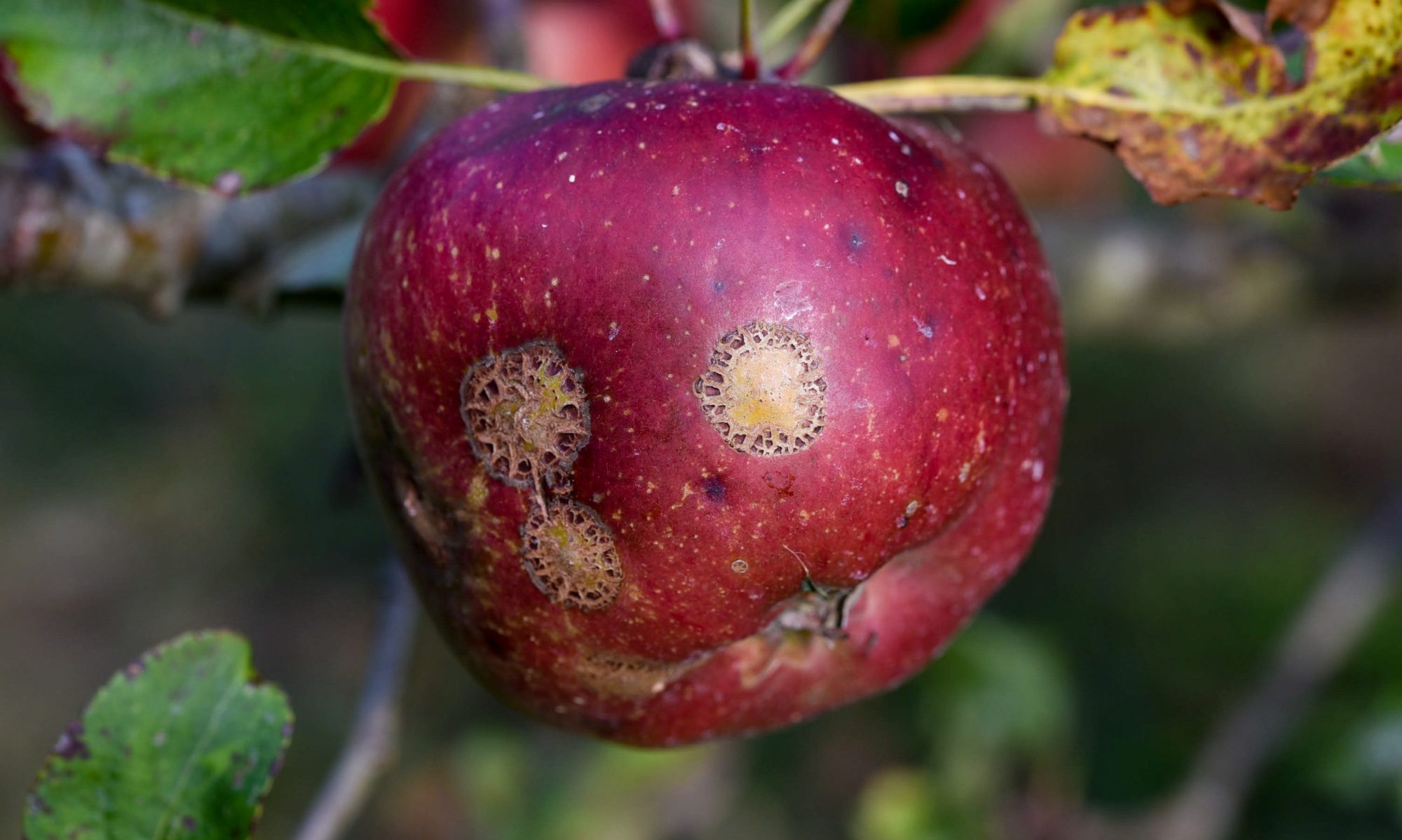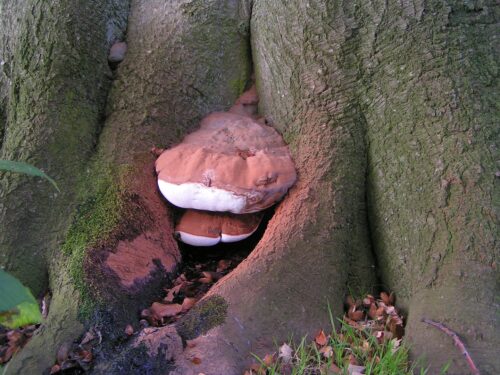Southern Bracket has a horseshoe-shaped wavy cap and belongs to the bracket fungi and is a parasite of living deciduous trees.
Southern bracket (Ganoderma australe). This fungus has a horseshoe-shaped wavy cap and belongs to the bracket fungi (Ganoderma). This fungus is found mainly in western and southern Europe and in some parts of Asia and North America; it’s very common and widespread in Britain The southern bracket is a parasite of living deciduous trees, although the fungus is also sometimes found on a conifer.
The southern bracket is found on the trunks of deciduous trees. The spores of the southern bracket infect the tree through small wounds on a tree. The fungus grows on dead parts of the tree, where it causes white rot. The infestation weakens the tree, making it vulnerable to branch breakage. Eventually, the tree dies from weakening.
The brown fruiting body has a white border and the underside with the pore layer is pale white. Sometimes the fungi grow tile-like on top of each other. The top of the fungus and surrounding area is often dusted with reddish-brown spores.
The southern bracket is far too tough to be edible.
Where to find
- Deciduous trees:
Control
Control is not possible.
Prevention
Does not apply.

